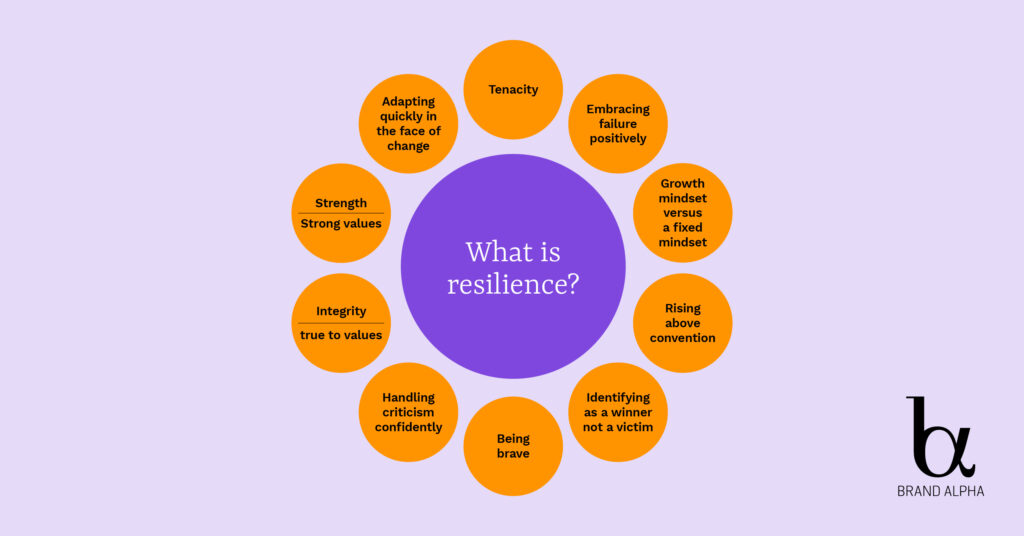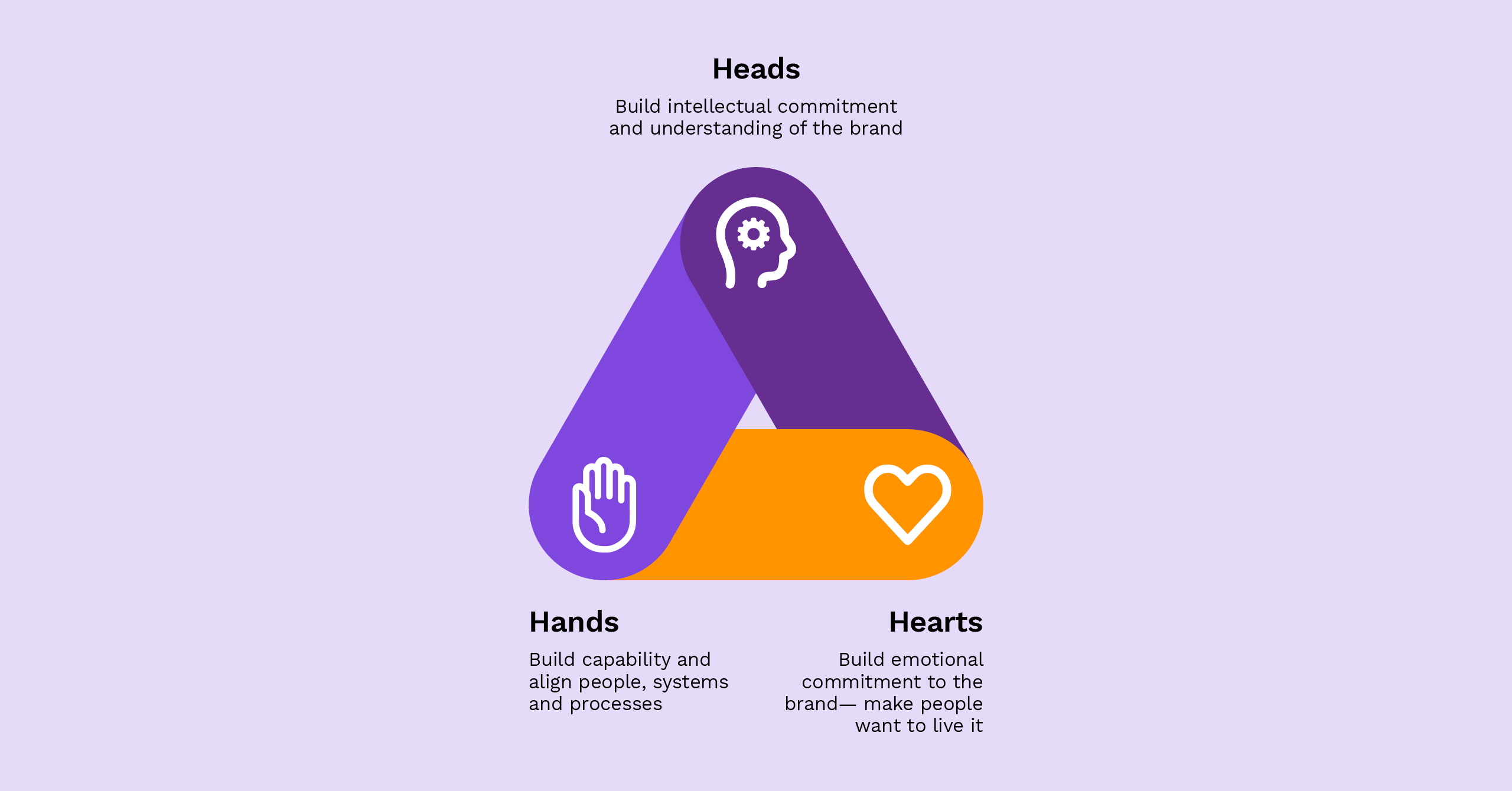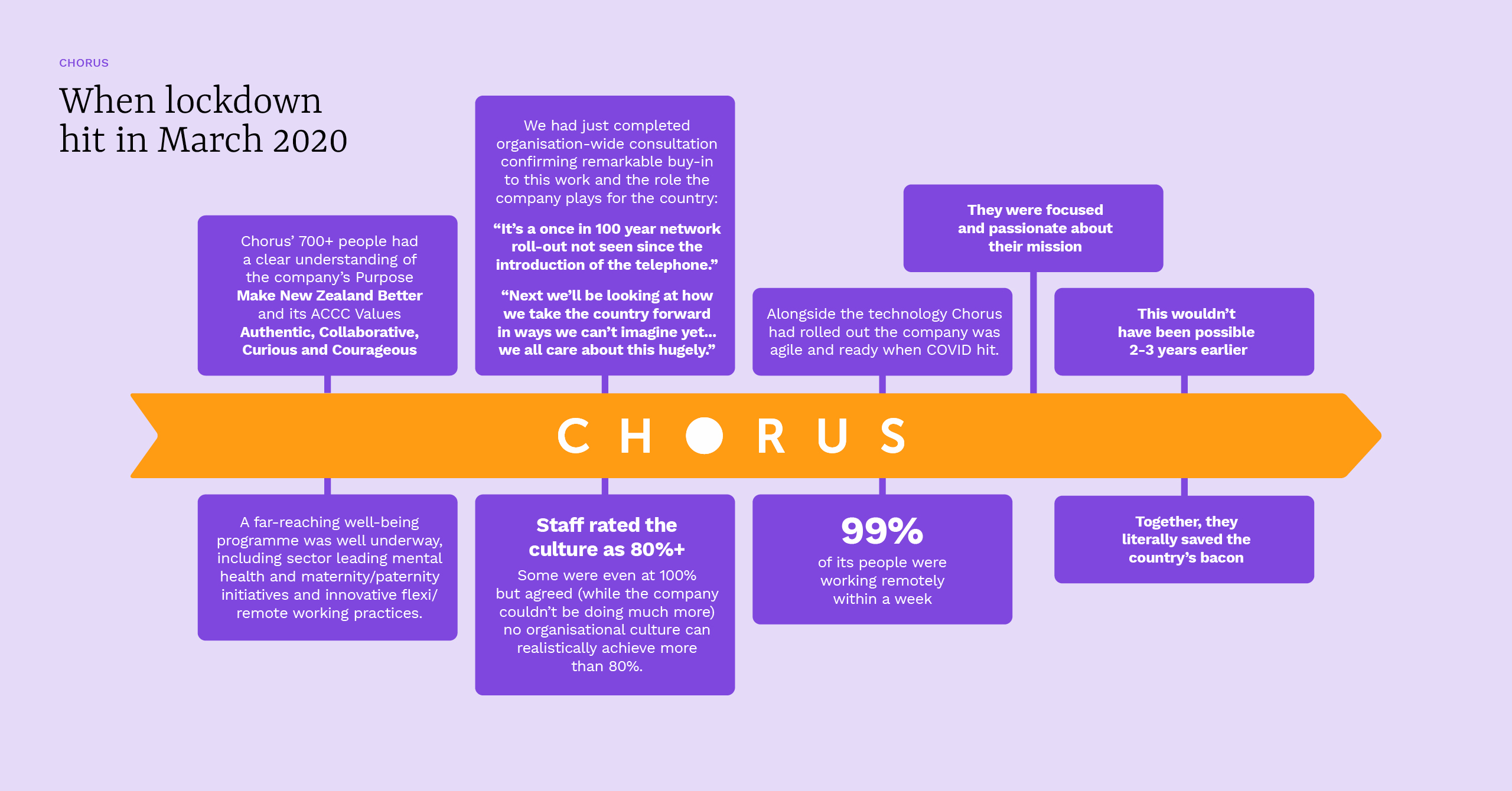September 14, 2021 — Article
Resilience, it’s a word we’ve heard a lot over the last year. But what does it mean in terms of how an organisation can manage today and future proof for tomorrow, especially in context of the last crazy year? Principals’ Nick Sampson explains.
This past year, organisations of all shapes and sizes have seen disruption, along with the resulting explosion of flexible and remote working.
Other things have been amplified too. Uncertainty is huge. Organisations have had their resilience tested like never before.
In this environment of flux, people are looking for a better sense of connection with employer brands. From law firms and telcos, to fruit and vegie companies, there’s a palpable increase in the desire for companies to have a purpose other than simply making profit. The drive for improved employee wellbeing also continues.
For the past decade, we have been running Brand Alpha, an annual consumer survey that ranks brands on authenticity measures in four areas – visibility, value, virtue and vitality. And this year, we have been exploring resilience, for obvious reasons.
The insights emerging about brands seen as most resilient highlight the increased focus on having a purpose with a broader societal aspect to it. The leading brands share certain characteristics.
They ‘know themselves’ and have a clear sense of their values, beliefs and the value delivered to their community. They are recognised (over time) by customers and staff as being true to these values, beliefs and their community role.
They also demonstrate an ability to adapt. To amplify the value delivered to customers through fresh expressions of their purpose and beliefs, and what they deliver in changing or trying times.
Analysis of the leading brands in the study – the top six being Ashley Bloomfield, Whitakers, All Blacks, Ecostore, Pak’nSave, My Food Bag – also suggests the pandemic helped elevate those that had an existing ‘moral code’. These were simply quicker off the mark because they had a degree of evident purpose.
So what can we learn from these businesses to make our own organisations more resilient?

People want to work for organisations they’re proud of
It’s no surprise doing good stuff has risen to the top of people’s thinking. We’re all aware of the challenges the world faces. When choosing (or staying with) an employer, this appears to interact with some fundamental human needs. Who we work for reflects on our own reputation. We want to feel good about what we’re doing. We want to feel our employer is worthy of us. There has been a well-documented sea-change around this thinking with the younger generation. Covid appears be accelerating this more broadly.
If we look again at the list of the top organisations in our Brand Alpha study, it’s clear there are several with a purpose that engenders pride in employees from the All Blacks to Ecostore.
Employers and brands can’t ignore this. Articulating purpose is being called out in RFPs and briefs from companies that would have considered this “fluffy stuff” several years ago. It’s music to my ears. Defining an organisation’s core purpose has always been at the heart of good brand strategy (or an EVP, although I prefer not to separate the two). In the past other terms were used – brand essence, DNA, promise, idea. The semantic move to purpose is meaningful in itself.
Likewise, the evolution of organisational values from box ticking corporate wallpaper to genuine benchmarks that guide behaviour, culture and business decision making is reassuring. Purpose and values (no more than three to four please) go together like gin and tonic. One needs the other to work properly.
Stand for something and adapt to thrive
It sounds pretty simple because it is. Unify your organisation around a relevant and inspirational reason for being that’s not just profit – supported by meaningful values and a concise story that articulates both.
Ensure these are tied into your business strategy, not seen as fluff that only HR or marketing look after. Bring them to life through your business to help drive wellbeing, performance, productivity, customer outcomes, and ultimately, your profit.
Three streams of work are typically required to embed and nurture these – something we call heads, hands and hearts. Building understanding of and commitment to what you stand for. Building emotional buy-in, so people want to be part of this. And weaving purpose, values and beliefs into your systems and processes – with new tools and communications as required.

The proof is in the pudding
There are two ways to measure this kind of work. Many companies invest in annual staff engagement surveys or other measurement tools. Chorus, an organisation that has invested significantly in sector leading purpose, values and staff wellbeing programmes, has used the Peakon platform since May 2019.
Over that time, it’s seen average engagement rise from 7.6 to 8.5. Scores relating to employee wellbeing are in the top 10 percent of global organisations. While questions relating specifically to mental wellbeing are in the top five percent. These initiatives and their associated measures are now seen as business critical at executive and board level.
The second measure is cold, hard business results. Again, Chorus has a success story to tell, reflected in improved customer satisfaction scores and share price growth. Then there’s the small matter of saving the nation’s bacon when lockdown hit. Where would we have been without (relatively) glitch-free remote working, learning, personal contact and entertainment?

What should you and your organisation stand for?
It’s a good question to ask. An even better one to have an answer for. An answer your people know, and crucially, believe in. It would certainly pay to have that answer before the next major disruption comes hurtling over the horizon, otherwise just how resilient will you be?
Nick Sampson is Strategy Director with Principals Brand Agency. He has led a range of organisational purpose, values and EVP projects for clients including Kiwibank, Chorus, Firestone, Waitamata District Health, Harrison Grierson, Simpson Grierson, Fulton Hogan, BNZ, Auckland Airport, InterCity Group and Firestone.
This article first appeared on the HRNZ website.





